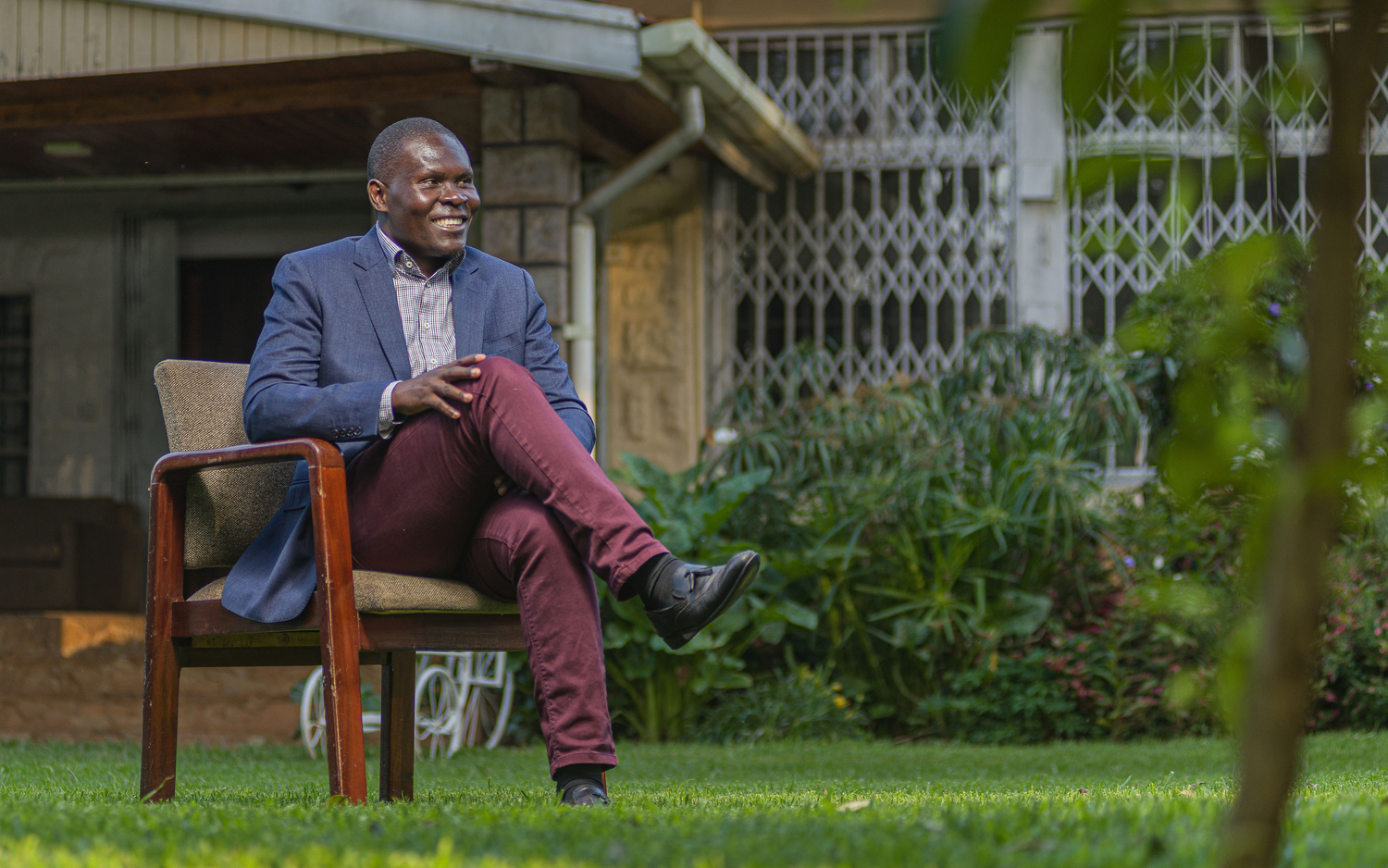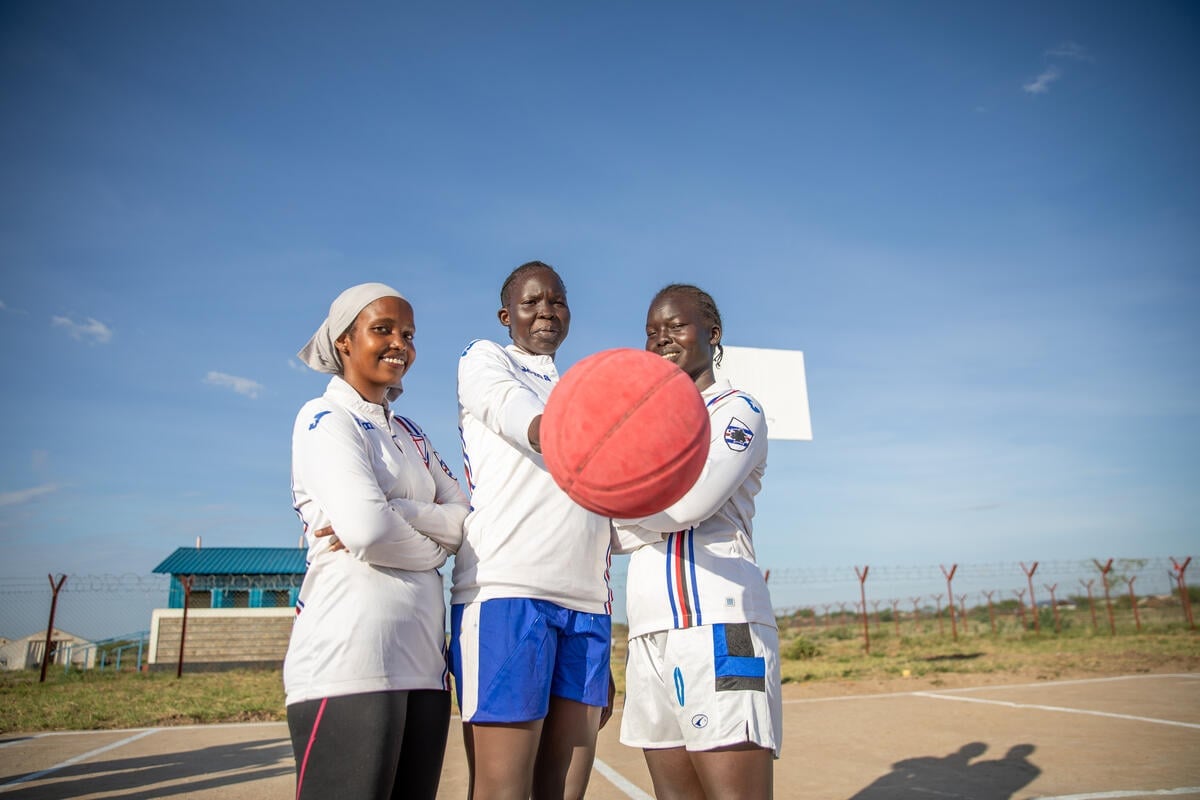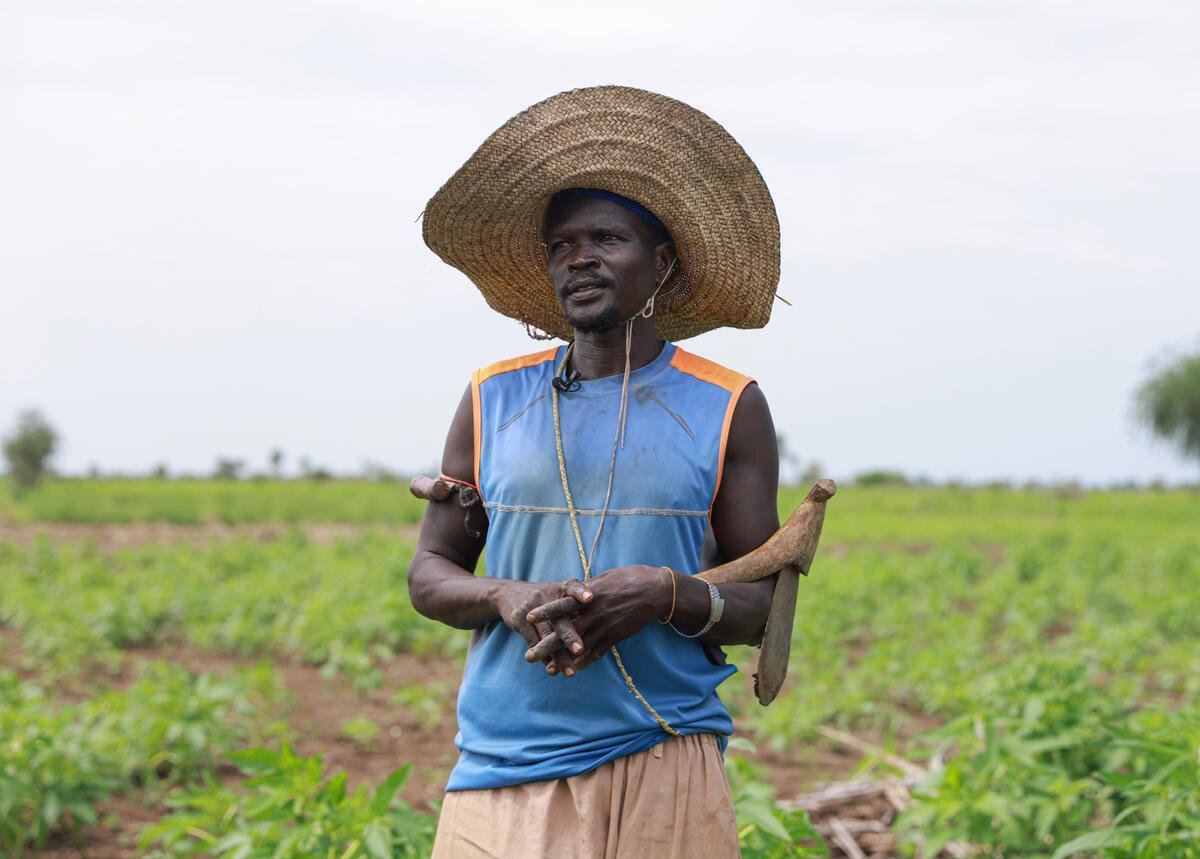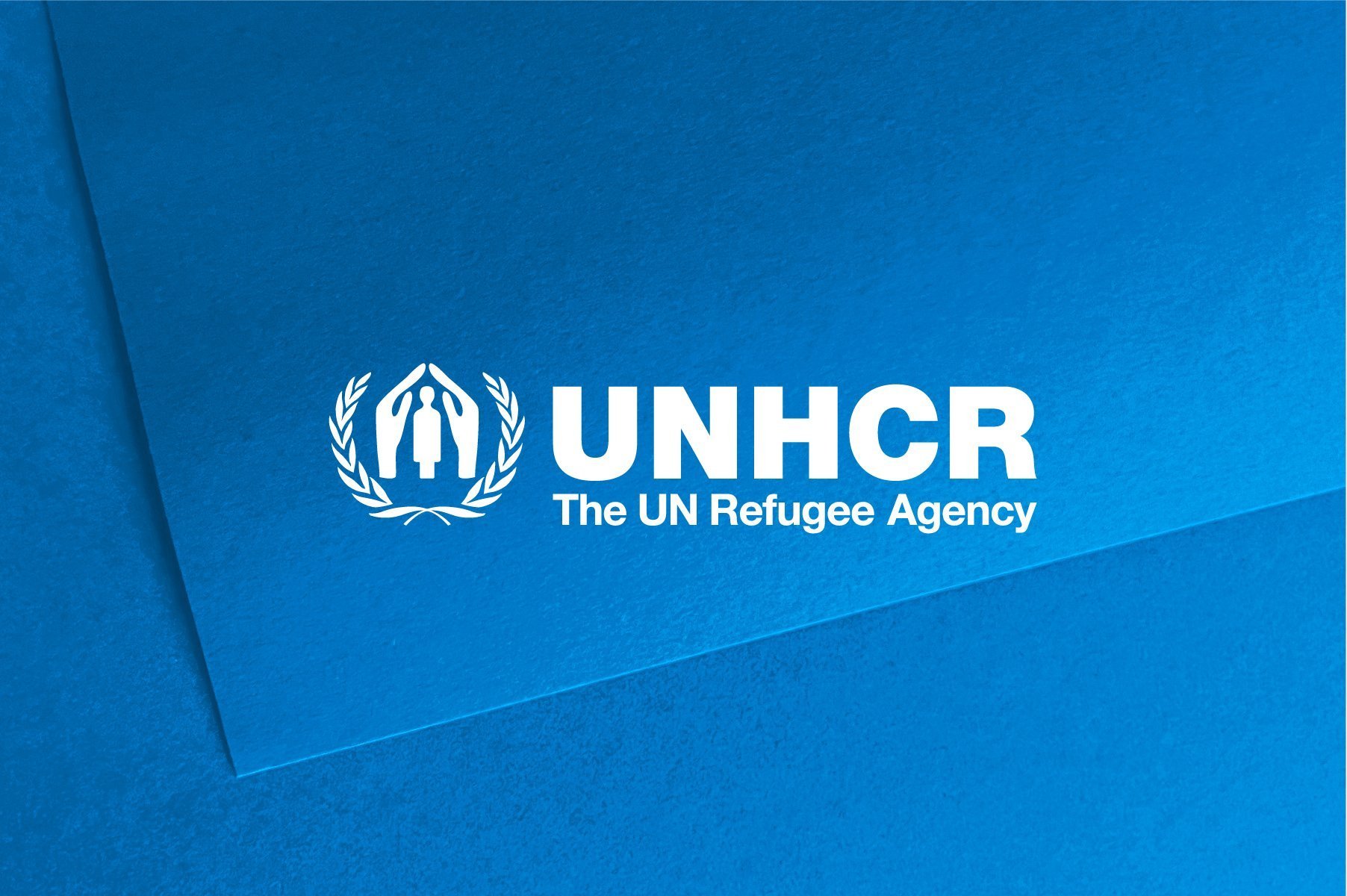Q&A: ‘We need to celebrate the courage of aid workers who continue to deliver’
Q&A: ‘We need to celebrate the courage of aid workers who continue to deliver’

George Obiero pictured in Naishola Gardens, Limuru, Kenya.
George Obiero is a staff counsellor for UNHCR, the UN Refugee Agency, supporting 11 country operations in the East and Horn of Africa and the Great Lakes region from his base in Nairobi. The 46-year-old Kenyan has a master’s degree in clinical psychology and previously worked as a counsellor and humanitarian in South Sudan, Nigeria and Kenya for UNHCR and other organizations.
In his current job, George provides psychological, emotional and practical support to his UNHCR colleagues, many of whom work in remote or high-risk locations. The role is multifaceted, from acclimatizing staff before deployment to combating stress and burnout on assignments and helping support evacuations from conflict zones.
To mark World Humanitarian Day on 19 August, George discusses the challenges faced by humanitarian workers responding to crises in Sudan and other countries in the region, the essential role of staff counsellors in ensuring their well-being, and offers advice to those considering a humanitarian career.
How did you become a staff counsellor?
After completing my master’s programme in clinical psychology in the US, I went straight into humanitarian work with Médecins Sans Frontières in Nigeria, supporting people displaced by the conflict with Boko Haram in Borno , Yobe and Adamawa States. After that, I did some work for a UNHCR partner agency in Dadaab refugee camp here in Kenya.
I also did some consulting work, supporting staff deployed by Save the Children, Concern and MedAir to work in places like Somalia and South Sudan, so that is really what piqued my interest in supporting humanitarians.
I started out with UNHCR in Juba, South Sudan, as a staff counsellor covering our operations in the country, before being reassigned in 2020 to the regional bureau in Nairobi and working through the COVID pandemic and beyond.
What does your work for UNHCR entail?
My role involves preparing and supporting colleagues who've been deployed to the 11 countries in our region. Quite a number of the duty stations are high-risk, with considerable challenges due to remoteness or insecurity, where getting access to basics like health care, banking or even food can present challenges. Many of our staff find themselves away from their families – working, working, working – so they can be predisposed to fatigue, stress and burnout.
We've also had several emergencies in the region while I’ve been here. The Tigray conflict in the north of Ethiopia and the more recent Sudan crisis. In situations like these, we provide support to staff who've unfortunately been exposed to traumatic situations.
What qualities do you think are important in your role?
An important part of my job is to have deep empathy for our staff working in the field. I try to tune in to my own experience of living and working in places like Maiduguri (the capital of Nigeria’s Borno State), where one minute you are working and the next there's shelling and somehow you still have to work. Then being able to use that knowledge together with the colleague to come up with some solutions.
Another thing that is very important for humanitarians is that we are practical. There is displacement; we go with food, we go with tents for shelter; we go with bottles of water. Humanitarians love practical solutions. For example, it's important that staff don't work long hours and then go back to the guesthouse and continue working. But what's the practical thing to do? Sometimes it could be just walking around the compound for an hour to relax and switch off from work.
Finally, the clinical knowledge and background – understanding human behaviour and how certain situations can trigger certain reactions.
What has been your role during the current crisis in Sudan?
I was part of a contingent of UN staff who received evacuated colleagues on the runway at Nairobi airport. Given all the challenges, it was a very difficult evacuation. They had to travel for 12 hours by road from Khartoum to Port Sudan, and a plane couldn't land there so they had to go by boat to Jeddah in Saudi Arabia – also an extremely long journey – before flying to Nairobi. I remember seeing colleagues, many who are familiar to me, some who had been evacuated with their loved ones, with two- or three-year-old children. Seeing the fatigue on their faces after this arduous ten-day journey, and the sudden change when they saw familiar faces meeting them on the runway, it was very emotional.
It's a challenge to help colleagues caught up in the conflict.
Now I’m following up with colleagues to see how they're recovering from the traumatic exposure and assess their readiness to resume work. It's a continuous conversation. And preparing those who are ready to resume, because now Sudan is a totally different operation from when they left. The lack of proper infrastructure now with the country devastated by conflict is something that staff continue to struggle with. But UNHCR staff are very resilient. Many are able to hit the ground running and do what is required of them, which is very good to see.
It continues to be a very difficult situation, particularly for our national staff. Many of them are not able to get out or, even if they are able, they choose not to because they can't leave with their family members. The environment is still very dangerous, so some of them are unable to make that journey. They continue to be exposed to traumatic experiences, they struggle with finances because the banking infrastructure has been destroyed in the conflict. We speak to them by phone and in WhatsApp groups to offer what support we can, but it’s a challenge to help colleagues caught up in the conflict.
Finally, what advice would you give someone considering a humanitarian career?
I would tell them that humanitarian work can be very, very fulfilling. Many colleagues I speak to talk about the challenges, but they also talk about how fulfilling their work is. But I would also say it's important to prepare yourself adequately for the unique challenges of the work, to enhance your mental resilience because humanitarian work can push you into very challenging situations. So preparation is key. And it's important also to realize that time-for-self is not being selfish.
The latest trends and data show that the conditions for delivering humanitarian aid globally are increasingly challenging. We need to celebrate the courage and resilience of humanitarian aid workers who continue to deliver in this increasingly challenging context. It’s also important to remember those who have paid the ultimate price while doing humanitarian work, those who have lost their lives in the line of duty.









